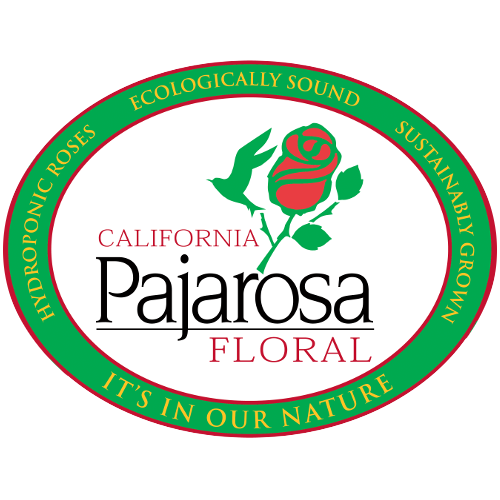Sustainability is a Family Farm Value
California Pajarosa is a family owned operation founded by John Furman and Alan Mitchell. Today they are joined by John’s son Paul, daughter Jaime and often, granddaughters Carmen, Katherine and their new playpal Chloe, who spend many days at the farm. Together they spend every work day in the greenhouses, packing shed, and administrative facilities at our Watsonville, CA nursery. We have employees who have worked for us for over 30 years, and now some of their children work here too. In a situation like ours, you do everything you can to make sure the work environment is safe and that everyone is treated with the dignity and respect they deserve. We’ve found that sustainable practices and environmental care are what you end up with when you run a responsible business.
Organic—Almost
Our growing practices are so clean and natural that we would qualify for organic certification if hydroponic operations qualified. They don’t—you need to grow in soil to be organic–but the point is that in every other respect, we meet the highest standards. We use environmentally friendly nutrients and pest controls in our growing operations and we have reduced out water usage virtually every year since we opened. That’s a record we are proud of.
American Grown for a Smaller Carbon Footprint
We grow our roses in Watsonville, California about 70 miles south of San Francisco. The amount of CO2 produced by shipping our roses to anywhere in the United States is dramatically lower than for roses coming from Columbia, Ecuador or Kenya. Buying from American growers not only keeps your money in America, it helps reduce consumption of oil and production of greenhouse gasses.
Certified
It’s not enough to believe you’re doing things right. If you really believe in your business practices, you put them to the test. California Pajarosa has been certified by the agricultural sustainability standards, certification and eco-labeling program recognized as the gold-standard in the floriculture and horticulture industries.
The program establishes criteria in the following key areas:
Environmental Sustainability
– Sustainable Crop Production
– Resource Conservation and Energy Efficiency
– Ecosystem Protection
– Integrated Waste Management
Social & Economic Sustainability
– Fair Labor Practices
– Community Benefits
Product Integrity
– Product Quality
– Product Safety
We think it fair to point out that while the program is international, the certification criteria in each country require that growers meet standards for pesticide usage, wages, and others as set in that country. The underlying standards in Columbia, Ecuador and Kenya vary. We are proud that our certification is based on standards set by the FDA and other agencies of the United States government.
